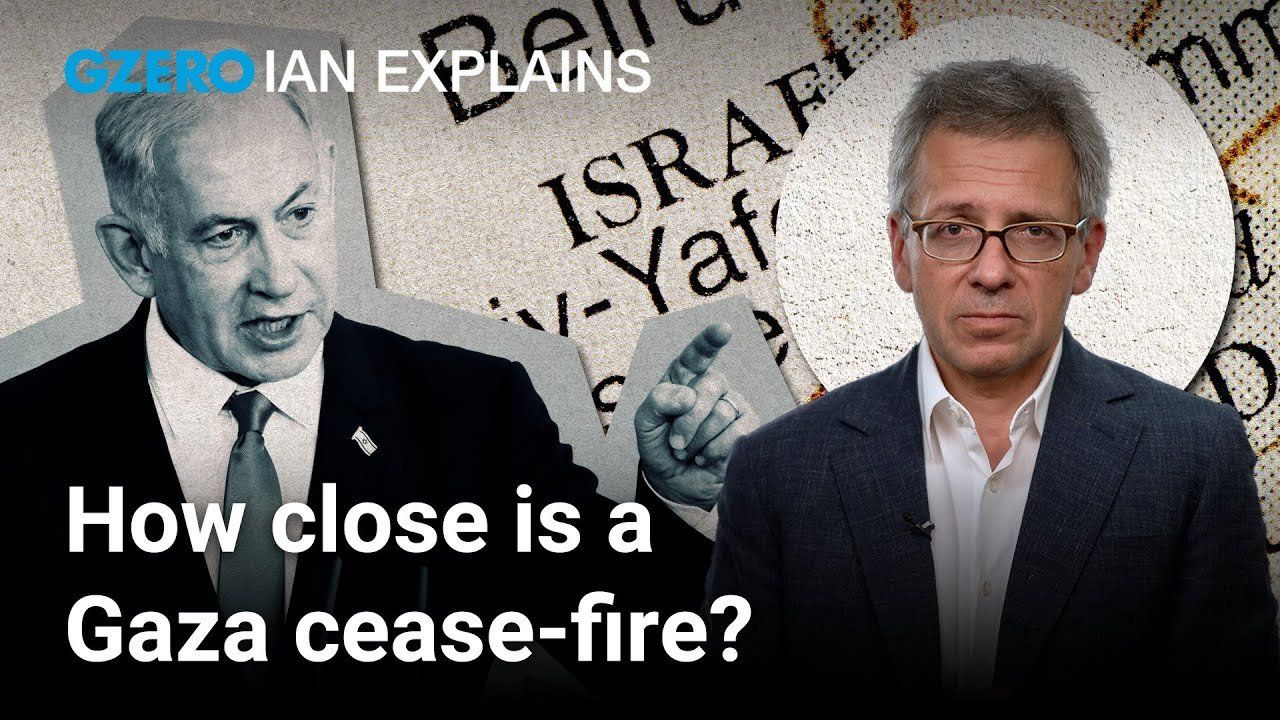
What is standing in the way of a ceasefire between Israel and Hamas in the war in Gaza?
On Ian Explains, Ian Bremmer unpacks the challenges and obstacles to achieving a ceasefire agreement in the Israel-Hamas war. The stakes are, as ever, incredibly high, and the humanitarian crisis has only gotten worse since the war began. Since October 7, around 40,000 Palestinians have been killed in the conflict, according to the Gaza Health Ministry, and the UN estimates that 60% of Gazan homes and 80% of commercial buildings and schools have been destroyed or damaged. If the fighting doesn’t end soon, over a million Gazans will face near-total starvation by mid-summer.
In late May, President Biden unveiled a three-phase ceasefire proposal that he said had the support of the Israeli government and the global community and was backed by the UN Security Council. But hopes for an agreement were dashed after Hamas requested amendments to the deal and Israel refused to publicly accept the plan. Hamas says any deal must include a permanent end to the war and full Israeli withdrawal from Gaza. Israel says it will only accept temporary pauses in fighting until Hamas is fully eradicated.
So is there any hope of a breakthrough? Will politics continue to take precedence over peace? Both the Palestinian and Israeli people would benefit from a real, lasting ceasefire, but, as Bremmer explains, it's not clear that the political leadership on either side actually wants it to happen.
Season 7 of GZERO World with Ian Bremmer, the award-winning weekly global affairs series, launches nationwide on public television stations beginning Friday, July 5 (check local listings).
New digital episodes of GZERO World are released every Monday on YouTube. Don''t miss an episode: subscribe to GZERO's YouTube channel and turn on notifications (🔔):.